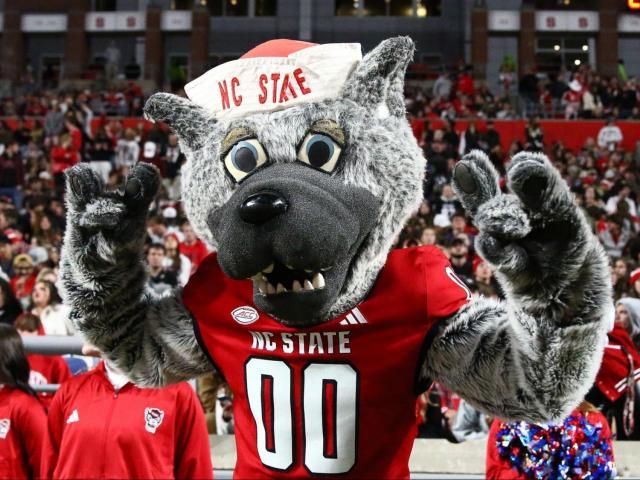North Carolina’s two largest athletic departments would receive funds derived from legalized sports gambling under a House budget proposal released Monday evening — a reversal from the existing state law.
North Carolina State and the University of North Carolina at Chapel Hill, with athletic budgets that exceed $100 million annually, were left out of any tax revenue distribution under current law, which passed in 2023.
But tax revenue from sports betting, which launched in the state in mid-March, has far exceeded projections. The state will collect more than $42 million through the end of May.
“There’s so much more money coming in from sports betting than was originally forecast,” said Republican state Rep. Jason Saine, a sponsor of the original sports betting bill and a key budget writer.
NC State and UNC would, along with Appalachian State University, East Carolina University, North Carolina A&T and UNC-Charlotte, split 5% of tax revenue from sports betting after initial distributions were paid.
The Senate does not support the entirety of the House proposal. Both chambers have Republican supermajorities and would have to agree on a spending plan for it to be enacted.
Current law allocates the first $8.4 million in tax revenue to various programs, agencies and schools, including $300,000 for each of 13 UNC System athletic departments.
Under the House budget proposal that figure would rise to $13.4 million with another $5 million allocated to the North Carolina Youth Outdoor Engagement Commission for educational field trips and the construction of outdoor educational structures.
Once that $13.4 million is spent, the remaining money is divided on a percentage basis with 20% going to the 13 athletic departments — excluding NC State and UNC — and 50% to the state’s general fund.
Current law stipulates that the remaining 30% would go to the new North Carolina Major Events, Games, and Attractions Fund, which is to be used to lure events to the state.
The House budget proposal lowers that to 25%, leaving 5% for the larger schools, including NC State and UNC.
Appalachian State, East Carolina, North Carolina A&T and UNC-Charlotte are included in both the distributions to the 13 athletic departments and the additional 5%.
The changes, as proposed, would go into effect Aug. 1, so tax collected before that date would be allocated under the distribution set by current law.
The proposed budget doesn’t include changes to the tax code to allow bettors to deduct gambling losses from taxes paid on winnings nor does it reduce the license fee for operators who want to take bets on horse races. None of the operators in the state are taking bets on horse races because the $200,000 annual license fee is considered too high, according to a report from the North Carolina Lottery Commission.
The budget proposal also adds bull riding under the definition of professional teams, allowing Greensboro-based Carolina Cowboys of the Professional Bull Riders to partner with a sports betting operator. Operators must have an agreement with a qualified team or facility to obtain a license in the state.
There are currently eight licensed sports betting operators in the state. Some eligible teams, like the NFL’s Carolina Panthers and the NWSL’s NC Courage, don’t have a written designation agreement with any operator.

